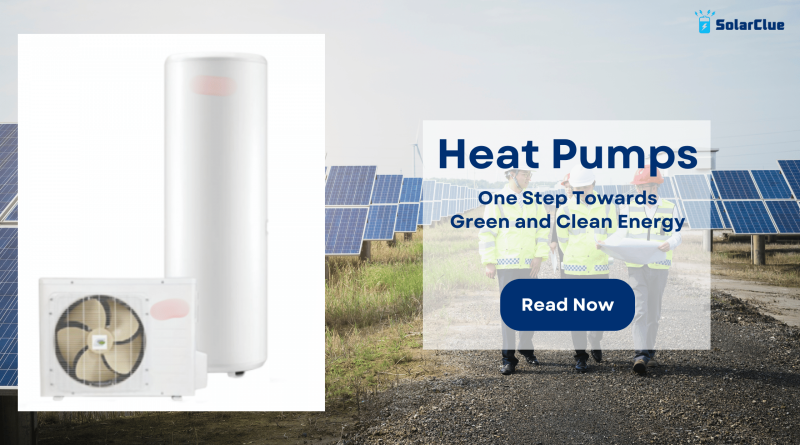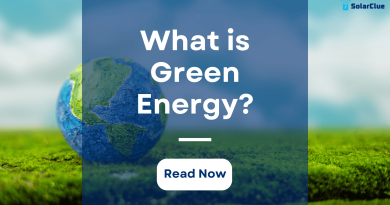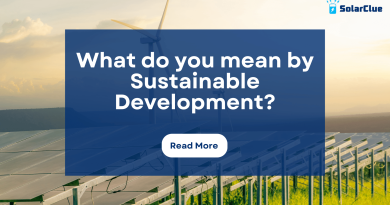Heat Pumps – One Step Towards Green and Clean Energy
India is facing severe environmental issues like pollution and global warming. To reduce this, one way is to install a heat pump, as it is one step towards green and clean energy. With the rising level of greenhouse gas emissions and carbon footprint, it time for India to adopt green energy. We must invest in green energy solutions, which is sustainable and good for the environment.
In this blog, we will explore what is meant by green energy, and how installing a heat pump is a way towards clean and green energy. Let’s get started!
Table of Contents
Green Energy Meaning
Green energy, also known as clean energy or renewable energy, refers to sources of energy that are replenished naturally and have a minimal impact on the environment. Examples of green energy include solar power, wind power, hydroelectric power, geothermal energy, and biomass energy. These sources of energy are considered environmentally friendly and sustainable, as they do not contribute to greenhouse gas emissions or depleting finite resources.
Why is Green Energy important?
Green energy is very important, as it is a way for a sustainable future. There are several benefits of adopting green energy, some of them are listed below:
1) Environmental Friendly:
Adopting green energy sources like solar, wind, and hydropower will help India reduce its carbon footprint and protect its diverse ecosystems from further degradation caused by traditional energy sources.
2) Prevent Emission of Harmful Pollutants:
Green energy does not release harmful pollutants like sulfur dioxide, nitrogen oxides, and particulate matter into the air, which can cause serious health issues and environmental damage.
3) Sustainability:
India’s rapidly growing population demands a sustainable energy solution. Green energy sources are renewable, meaning they can be replenished naturally, ensuring a consistent supply of energy for generations to come.
4) Reduces Dependency on Fossil Fuels:
India heavily relies on imported fossil fuels like coal and oil. Transitioning to green energy will decrease this dependency, strengthening the country’s energy security and reducing its vulnerability to price fluctuations.
5) Cost-Effective:
While the initial investment in green energy infrastructure may be high, the long-term cost savings and environmental benefits make it a worthwhile investment for India’s future.

Heat pump is one of the best green energy solutions for meeting your hot water needs. Most Indian homes use geysers for this purpose. But it consumes huge amount of electricity to heat water, as it uses direct electricity to heat the water. This not only has a bad impact on the environment, but also costs you huge amount of money every month.
Let’s see what is a heat pump, and how heat pump is one step towards green and clean energy.
What is a Heat Pump?
A heat pump is a water heating device, to meet your daily hot water needs. It is energy-efficient, as it uses less electricity than other traditional water heaters. The difference lies in the working principle. Any traditional water heater, like a geyser, uses direct electricity to heat water. Whereas, a heat pump uses electricity to only transfer heat from one place to another. This heat is used to produce hot water, rather than electricity. A heat pump is one of the best sustainable ideas for the future.
How a Heat Pump System Works?
A heat pump works on the principle of transferring heat from one place to another.
This system consists of two main components: an indoor unit and an outdoor unit.
The outdoor unit has two parts – an exhaust fan and a compressor. And the indoor unit is the storage tank, where water is stored.
The exhaust fan absorbs heat from the surrounding air, while the compressor compresses the refrigerant gas, increasing its temperature. This heated refrigerant gas then passes through a spiral condenser inside the indoor unit, transferring its heat to the water stored in the tank. This process continues until the desired water temperature is reached.
Unlike traditional geysers that use a significant amount of electricity to generate heat, heat pumps consume less energy by simply moving heat from one place to another. This makes them more energy-efficient and cost-effective in the long run.
Do Heat Pumps use Green Energy?
Yes, heat pumps do utilize green energy to a significant extent. Instead of using direct electricity to heat water, they absorb heat from surrounding air (renewable energy) to heat water. While they require electricity to operate, the heat they transfer into the water is derived from the surrounding air, which is a renewable and inexhaustible source of energy. In fact, heat pump water heaters are considered to be approximately 90% renewable, making them a highly sustainable choice for water heating. So installing a heat pump in your home means you are taking one step towards green and clean energy.
What are the other benefits of Heat Pumps?
In addition to heat pumps being a sustainable alternative, there are several other benefits:
1. Cost-Effective
Heat pumps have high upfront cost. However, they make up for it through lower operating costs. Heat pumps transfer heat rather than generating it directly. This uses far less electricity – up to 75% less. Over its 10-15 year lifespan, a heat pump can save you hundreds or even thousands in energy costs. So it is actually a cheaper alternative to other traditional water heaters like geysers.
2. Long Lifespan
With proper maintenance, heat pumps last 15 years or more – significantly longer than standard electric geysers (8-10 years). So there is no need for replacement for a long time. This extended life cycle also contributes to it being a cost-effective option.
3. Reduced Water Wastage
Traditional water heaters constantly heat and reheat the same water, leading to significant energy losses. Heat pumps heat water more efficiently, so you don’t have to run the tap as long waiting for hot water. This conserves water, especially in households with long pipe runs.
4. Efficient in Cold Climates
One common misconception about heat pump water heaters is that they may not perform well in colder climates. However, modern heat pump water heaters are designed to be efficient even in low temperatures. They can effectively extract heat from the surrounding air, even when the temperature drops below freezing. This makes heat pump water heaters a viable and energy-efficient option for hot water needs in various climates, including colder regions.
5. Manual Temperature Setting
Most heat pumps allow you to change temperature as per your requirements. This ensures you have hot water when needed without wasting energy by overheating the water beyond your requirements.
6. Availability in Different Sizes
Heat Pumps normally have an indoor and an outdoor unit. But many homes in India, specially in big cities, may not have that space available. For that, a single-unit heat hump is designed. It is also called Integrated Heat Pump.
Conclusion
Green energy in India is the need of the hour. Heat pumps, being 90% renewable, contribute a lot to green energy clean energy. This system not only contributes towards sustainability, but also saves cost. It is now time for India to invest in heat pump, for a sustainable future for ourselves and the generations to come.
Visit SolarClue® to see the best heat pump water heaters. SolarClue® is an online marketplace where solar energy products are sold at discounts up to 50%.




